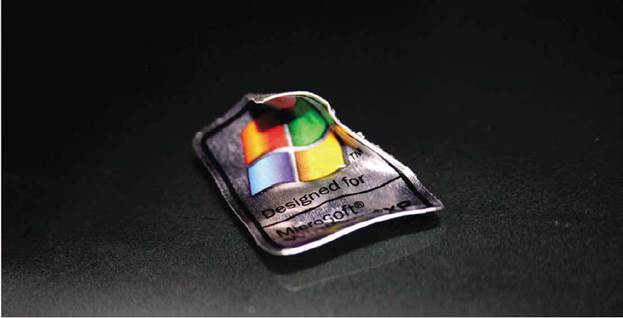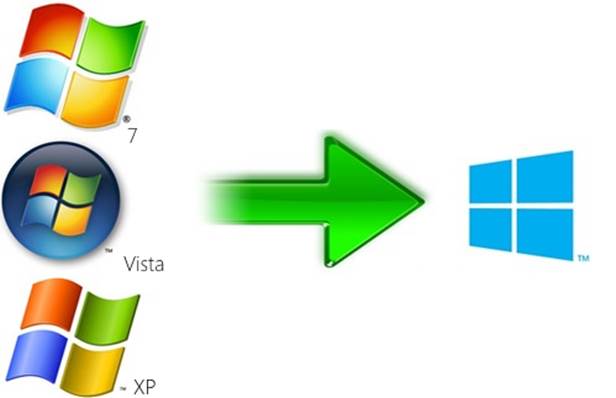Can Microsoft Really kill XP?
The trouble with massively successful
products like Windows XP is once they get out into the wild, they do tend to
take on a life of their own. Because Windows then wasn’t run like the
walled-garden that Apple has with its controlled App Store, anyone was able to
use XP in whatever way they imagined.

Can
Microsoft Really kill XP?
At the launch, Microsoft wanted as many
people as possible to use it, and then order Office, or any of the other
expensive software that goes with Windows. Windows being ‘open’ at least in
terms of the software and hardware you could install with it was a huge selling
point, and it made Windows the OS that dominated the market. That was then; this
is now.
Having supported the expansion and growth
of XP over more than a decade Microsoft has the unenviable chore of taking XP
out to make room for new purchasing experiences. However, it’s not as
straightforward as that statement might suggest, because all those who own
Windows XP aren’t singing from eh approved Microsoft song sheet any longer.
Probably a year after Vista launched, it
was obvious that XP owners were going to be difficult, and Microsoft has
focused resources on Vista, and now Windows 7 and 8, to make them relinquish
their beloved OS.

Windows
8 flailing about gaining little traction, Microsoft has only one card left to
play which is to remove support for XP entirely.
Having seen relatively little headway from
this marketing money, and Windows 8 flailing about gaining little traction,
Microsoft has only one card left to play which is to remove support for XP
entirely. This is a move you only get to play once, and it’s the final gambit.
In a fantasy world that only senior
software execs can exist in, they’d send a missive to tier support division
asking them to send an automated update out that stopped all XP machines
working and placed an option to upgrade on the screen.
Even Microsoft can’t really try that (can
it?), so once it’d dealt the end-of-support card, it’s left to try to ignore
all those ex-customers as much as it’s practical to do so.
It’s sobering to consider that I’m talking
about almost 40% of all desktop computers on the planet in that sweeping
statement, but that is where it’s chosen to go. This exposes the somewhat
surprising truth, which is that XP is done when those using it say so, not
Microsoft. As companies go, Microsoft is big, but it is entirely dwarfed when
compared with the approximately 600 million active XP users in the world.
Microsoft might be the master of
inflexibility, but unless it intends to poison XP while it slumbers, it looks
destined to live on, whatever services the firm withdraws from it.
Final thoughts.
Technically, Microsoft can do list of
things to try to make XP go away. None of them are desperately customer
friendly, but that’s never stopped it before. However, from a totally objective
position, XP is currently alive and well at least eight years after Microsoft
marked it for death, when it launched Vista.

From
a totally objective position, XP is currently alive and well at least eight
years after Microsoft marked it for death, when it launched Vista.
If anything, to paraphrase Friedrich
Nietzsche, the more times Microsoft tries to kill XP, the stronger it appears
to get. The reality is that XP will carry on running on millions of computers
around the world until none of those computers work and you can’t buy hardware
you can install a valid license on. That could be a very long time, and ten
years from now I’m sure we’ll still see the odd XP system in use, maybe even
for longer than that.
The problem that Microsoft never actually
confronted was that what people use computers for 98% of the time, XP did more
than acceptably. That makes justifying an upgrade problematic, and the
incremental nature of Windows versions hasn’t really delivered a killer reason
to ditch XP yet, even after three subsequent releases.
Microsoft’s single minded intentions to rid
itself of XP might also be somewhat short-sighted, because it’s making an
assumption about its customers that it’s supported by the sales of PCs. It
wanted XP dead and buried to help sell Vista, and then Windows 7 and now
Windows 8. But that statement assumes that when you ditch one version of
Windows you automatically move to another, and that’s no longer a guaranteed
conclusion.

It
wanted XP dead and buried to help sell Vista, and then Windows 7 and now
Windows 8. But that statement assumes that when you ditch one version of
Windows you automatically move to another, and that’s no longer a guaranteed
conclusion.
What Microsoft may be doing is encouraging
its customers to leave Windows entirely, buy a tablet and not look back. It’s
worth remembering that an XP customer is still that, a customer, even if
Microsoft spent their money a decade ago. They still have the potential to buy
Office and other Microsoft products with their old OS, unless you move them off
Windows.
If Microsoft converts an XP user into one
that uses an Android tablet, then he’s not going to be guying Office or nay of
Microsoft’s PC –based tools.
There’s an element here of throwing the
baby out with the bath water, and those in charge at Microsoft do appear to be
thinking like it’s 1995.
If I were XP, I wouldn’t take all
Microsoft’s efforts to write my premature obituary to heart, because on 10th
April of last year it ended mainstream support for Vista, and in 2015 it’ll do
the same for Windows 7. Windows 8 currently has until January 2018, with
extended support ending in 2023.
Microsoft’s failure to elegantly deal with
the longevity of XP may turn out to be one of the reasons that will be given
for its ultimate decline, and it also points out that creating an OS that’s
‘stable, usable, and fast’ can come back to bite you at some point.